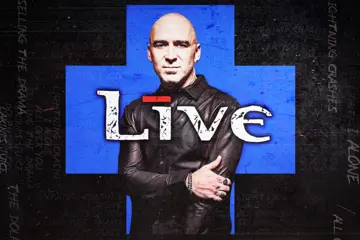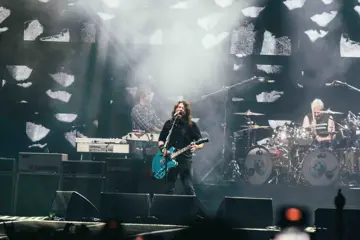Today, the Albanese government issued a press release announcing its plans to ban businesses from continuing with “unfair trading practices" and to address the controversial practice of “dynamic pricing.”
Prime Minister Anthony Albanese has stated that banning dynamic pricing, subscription traps that make cancelling subscriptions difficult, drip pricing (hidden/added fees), and other practices are about easing the cost of living.
In terms of live music, here’s what the government is targeting:
‘Drip pricing’ practices where fees are hidden or added throughout the stages of a purchase.
Dynamic pricing where a product’s price changes during the transaction process.
Albanese stated, “We’re taking strong action to stop businesses from engaging in dodgy practices that rip consumers off.
“Today's announcement puts businesses engaging in unfair trading practices on notice. Hidden fees and traps are putting even more pressure on the cost of living, and it needs to stop.”
While the government has said it’s set to ban dynamic pricing, it’s important to note that the statement about the practice is different from what actually happens with ticket pricing.
According to an In The Black explainer on how dynamic pricing works, the practice involves businesses adjusting the pricing—in this case, concert tickets—based on demand, competitor pricing, and other factors. The price also doesn’t change during the transaction process, but when browsing for tickets, prices can be higher than advertised due to demand.
Don't miss a beat with our FREE daily newsletter
With dynamic pricing, companies optimise pricing to maximise profits, increase revenue, and respond to market changes. In The Black states that aside from the practice gaining controversy when utilised by tour promoters, it’s existed for a long time in travel and hospitality industries.
The government’s announcement arrives just days after this week’s Four Corners, which aired an investigation into Live Nation’s alleged increasing monopolisation of the live music industry in Australia. The episode also explored alleged “hidden” fees tacked on by Ticketmaster when you buy concert tickets.
In a statement to The Music following the airing of Four Corners, the company said, “Ticketmaster does not set prices, nor do we have or offer algorithmic surge pricing technologies.”
Adding that ticketing companies like Ticketmaster “do not control” how artist teams and even organisers price their events, Live Nation said they “have tools” to help artists and their teams understand demand for tickets.
They continued, “It is the artist teams who decide which tools to use and how to best balance revenue goals with fan access. Artists are increasingly reliant on live music for their livelihood and to support their crew and rising production costs. It’s costly for most international artists to add Australia/New Zealand to their tour, and those costs have dramatically increased after Covid.
“Ticket prices need to compensate touring artists and ensure that Australia continues to attract many of the world’s most popular artists.
“Ticketmaster complies fully with Australian Consumer Law by incorporating per ticket or percentage fees into the price of the ticket paid by fans, and prominently disclosing any optional or transaction level fees.”
The Music reached out to Ticketmaster for comment about today’s news, but at the time of publication, hasn’t received a response.
















